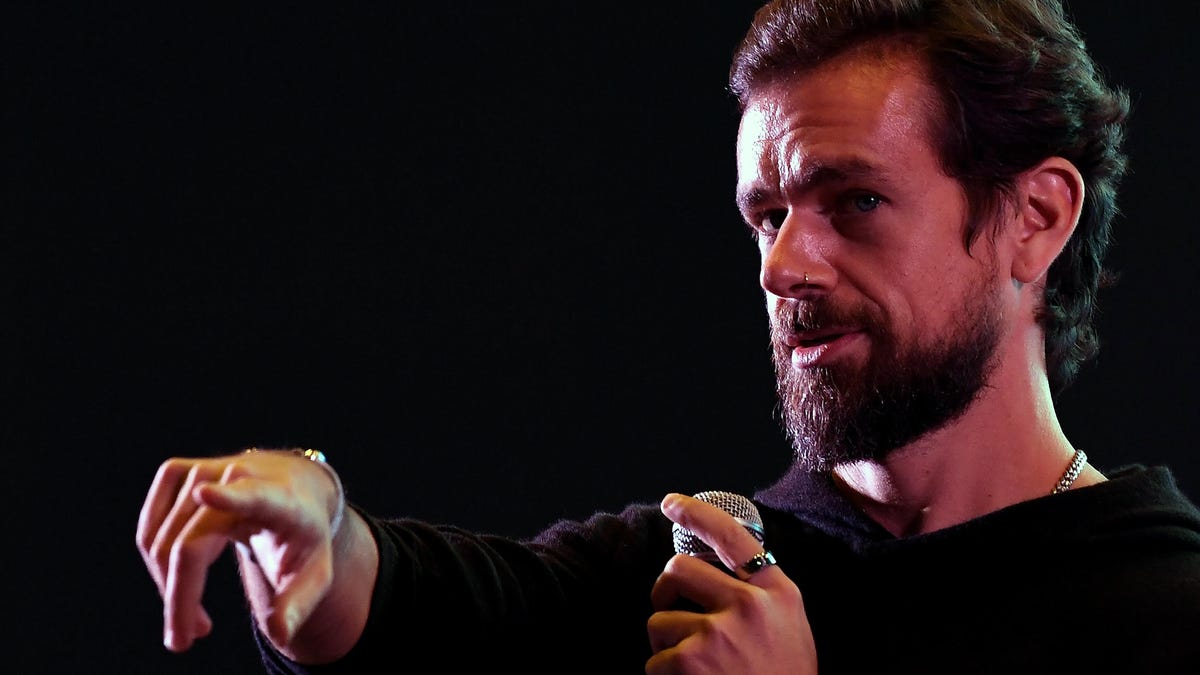Twitter CEO Jack Dorsey explains his vision for social media's future
From audio to giving users more control over content moderation, Twitter has been experimenting with new tools.

Twitter CEO Jack Dorsey spoke virtually at the Goldman Sachs Technology and Internet conference on Wednesday.
Twitter CEO Jack Dorsey said Wednesday he envisions his short-message service becoming less centralized over time, a development that will give social media users more control over their data and the type of content they see.
The remarks build on earlier comments Dorsey has made about the future of social media. In 2019, Twitter said it was working on Bluesky, a project focused on creating "an open and decentralized standard for social media" that could help the site better combat online abuse and misinformation. The social network also began testing a forum called Birdwatch that lets users spot misleading tweets and weigh in on why they think the information is wrong.
"We want to stay ahead of where the market is moving and where people are moving," Dorsey said at Goldman Sachs' virtual Technology and Internet Conference on Wednesday. "I believe so much that this trend will come to pass."
In the 40-minute interview, Dorsey spoke about a variety of topics, including regulation and Twitter's plans to explore revenue outside of advertising.
Here are some highlights:
Moving beyond the tweet: Twitter needs to move beyond 280-character tweets in order to add to the "public conversational layer of the internet," Dorsey said. The company has been testing "fleets," a tool that lets you share content that disappears in 24 hours. It's also been experimenting with an audio chatroom feature called Spaces, and acquired the newsletter platform Revue. Twitter is trying to make it easier to follow topics and interests.
Twitter can also become a place for recruiting, Dorsey said, noting that people are using the site to find others they want to work with or to share interests. "We don't want to be seen as just the thing that shows you what's happening right now," he said.
Regulation: US lawmakers have been eyeing changes to a federal law called Section 230 that shields internet companies from liability for content posted by users. Dorsey referred to the growing debate, saying more transparency around content moderation was needed. But he also noted that changing Section 230 could impact online reviews, message boards and other content on the internet. Twitter is in "active discussions with regulators," he said, but cautioned that some proposals could reduce competition or "the spirit of an open Internet."
Content moderation: Twitter's efforts to label misinformation and its permanent ban of former President Donald Trump have rubbed some conservative users the wrong way, prompting them to bolt from the platform to explore alternatives, such as Parler and Gab. Dorsey, though, doesn't seem too worried about a drop in daily users. He said that 80% of Twitter's users are outside the US and that the service has more than 50 accounts with more than 25 million followers.
Decentralizing social media: Dorsey talked about the various ways Twitter is looking at giving users more control over their experience on the site. Twitter users, for example, might be able to choose different algorithms, which social networks use to choose the content users see, to curate their experiences. Third-party developers could also build their own algorithms for people to choose. "You just level the playing field even more and we're competing on the true merit of where the world is moving rather than just, you know, hosting and owning the content," he said.
Subscription: Twitter has been looking at new ways to generate revenue outside of advertising. That includes ideas like charging a subscription fee for services such as TweetDeck, a dashboard for scheduling tweets and managing multiple accounts. Twitter is also looking at charging for exclusive content or ad-free feeds, Bloomberg reported Monday. Dorsey said the company wants to focus on the "economic incentive to the people who are contributing to Twitter." The social network is studying those ideas.

